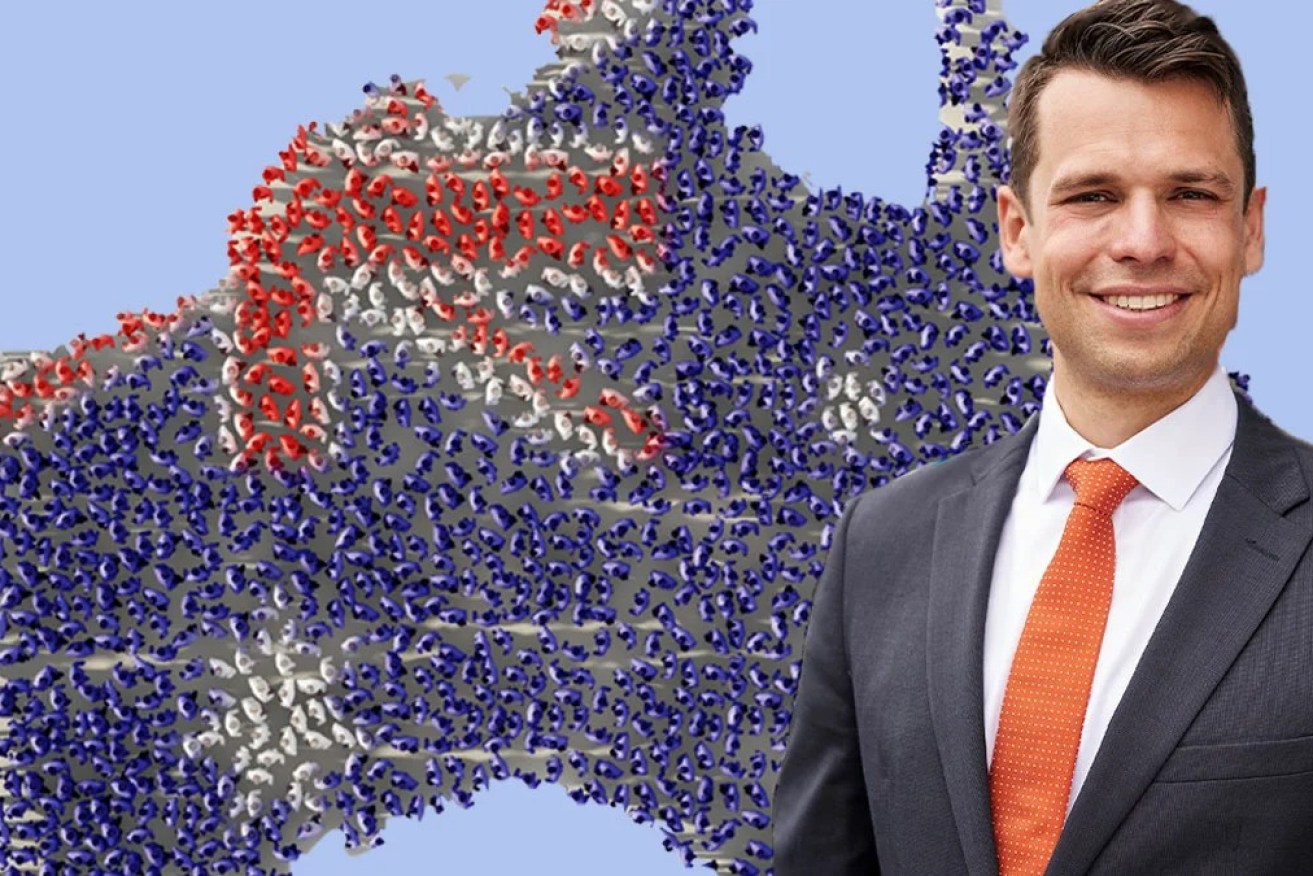The drivers of Australian population growth
Our resident Stats Guy predicts that the young, diverse and non-believing will get Australia to 30 million residents.


By 2033 Australia will have added more than 3.5 million people to its population, taking the total to about 30 million.
About two-thirds of this growth will come from overseas migration, mostly young Asian migrants.
There is no ethnic bias in our migration scheme. We take in whoever is willing to pay an arm and a leg for a uni degree and whoever has a qualification on our skilled migration list.
This magical list acts like Uber Eats, where we put any understaffed jobs on the list and get workers with the right qualifications delivered to our door.
The reasons the majority of migrants will come from India and China are demographic in nature. There just aren’t all that many young Europeans left. India and China have plenty of young people (even though the Chinese population is shrinking at fast rates).
More than 75 per cent of our migration intake is aged 18 to 39. We will continue to import workers as young as possible to ensure they pay taxes for as long as possible.
Throughout the next decade, all industry organisations will lobby hard to get their jobs onto the coveted skilled migration list. That’s the fastest way to add workers to each industry. Expect strong competition between industries here.
Maybe, just maybe, we will see a federal government in the coming decade that links our migration intake with national housing targets. The fact that Australia as a migration nation runs a national migration policy that isn’t linked to the national housing policy is quite neglectful.
With the recent focus on adding housing supply, we have been seeing meaningful steps towards making housing more affordable.
The logical next steps would be linking migration and housing targets, and even the establishment of a state-owned housing developer who builds housing at scale for the bottom of the market.
The only scenario in which I see housing becoming more affordable without the state building for the bottom 20 per cent of the market is a quantum leap in the prefabricated home segment.
Multicultural Australia
Culturally, we will be more diverse than ever and become increasingly comfortable with these changes. The slow but successful integration process continues.
The first generation of Greek and Italian migrants from the 1950s can tell horror stories of how they were mistreated and bullied. Their kids, the second generation, are now well integrated into Australian society.
Today a Greek or Italian-Australian is as true-blue Aussie as can be. The first step to full integration into society was our collective embrace of their foreign cuisines. We simply realised that the Mediterranean cuisine was superior to our bland meat and potato diet.
Today we are embracing curries and stir fries as stock standard Aussie dinner options.
As we see more cross-cultural marriages, I am increasingly confident that the second generation of Asian migrants will be just as well integrated as the Mediterraneans are today.
Religion to dwindle
The 2031 Census will record a majority of Australians as non-believers. By 2033, religious belief is at an all-time low.
The remaining few believers are spread across a multitude of faiths.
Religion increasingly loses its function as social glue. The role of sports in providing social cohesion only intensifies as we become more atheistic.
The 2032 Brisbane Olympics will have seen the nation barrack for the same athletes, and we’ll feel a bit prouder to be Australian than we do now.
As we continue to grow at pace on the back of overseas migration, we must constantly educate newcomers about Australian values and constantly re-establish our collective national identity.
This task is getting much harder in this decade, as young people in particular deconstruct and re-examine national myths. This well-meaning act risks a worsening of social cohesion.
Overall, we live comfortably in 2033 as high commodity prices guarantee wealth and the first small tentative steps in distributing the wealth more equitably are made.
The big trend will go towards taxing wealth and capital rather than income and consumption. Don’t expect too much movement in just a decade though.
Pets will be all the rage as more single-person households look for companionship. We truly live in the age of the pet in 2033.
Pets are given more rights and will be allowed in all rental properties. Pets take up a more important role in many people’s lives. Retail spending adjusts accordingly, and we will see even more luxury pet products on the market.
The 2031 Census data will show Australia to have more Indigenous people, and more same-sex-attracted people. This reflects people feeling increasingly safe and comfortable.
It is not due to huge Indigenous birth rates and Australians shifting their sexual preferences. Australians embrace diversity and openly identify with our cultural heritage, plus being open about sexual preferences, must be seen as a mark of social progress.
Most importantly, our national obsession with lifestyle will remain unchanged and drive our consumer choices more than ever.
We will want to live in lifestyle locations. We will want to enjoy our precious spare time and we will spend big on consumables that allow us to have a good time.
Demographer Simon Kuestenmacher is a co-founder of The Demographics Group. His columns, media commentary and public speaking focus on current socio-demographic trends and how these impact Australia. His latest book aims to awaken the love of maps and data in young readers. Follow Simon on X (Twitter), Facebook, LinkedIn for daily data insights in short format.
This story first appeared in our sister publication The New Daily, which is celebrating 10 years of delivering national news.




